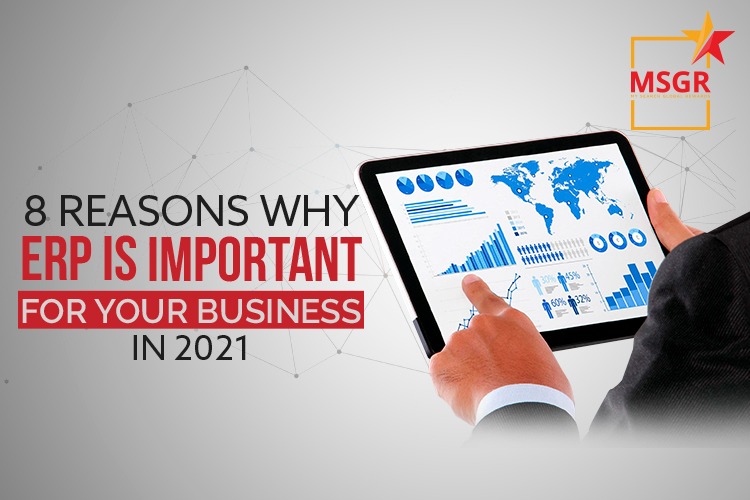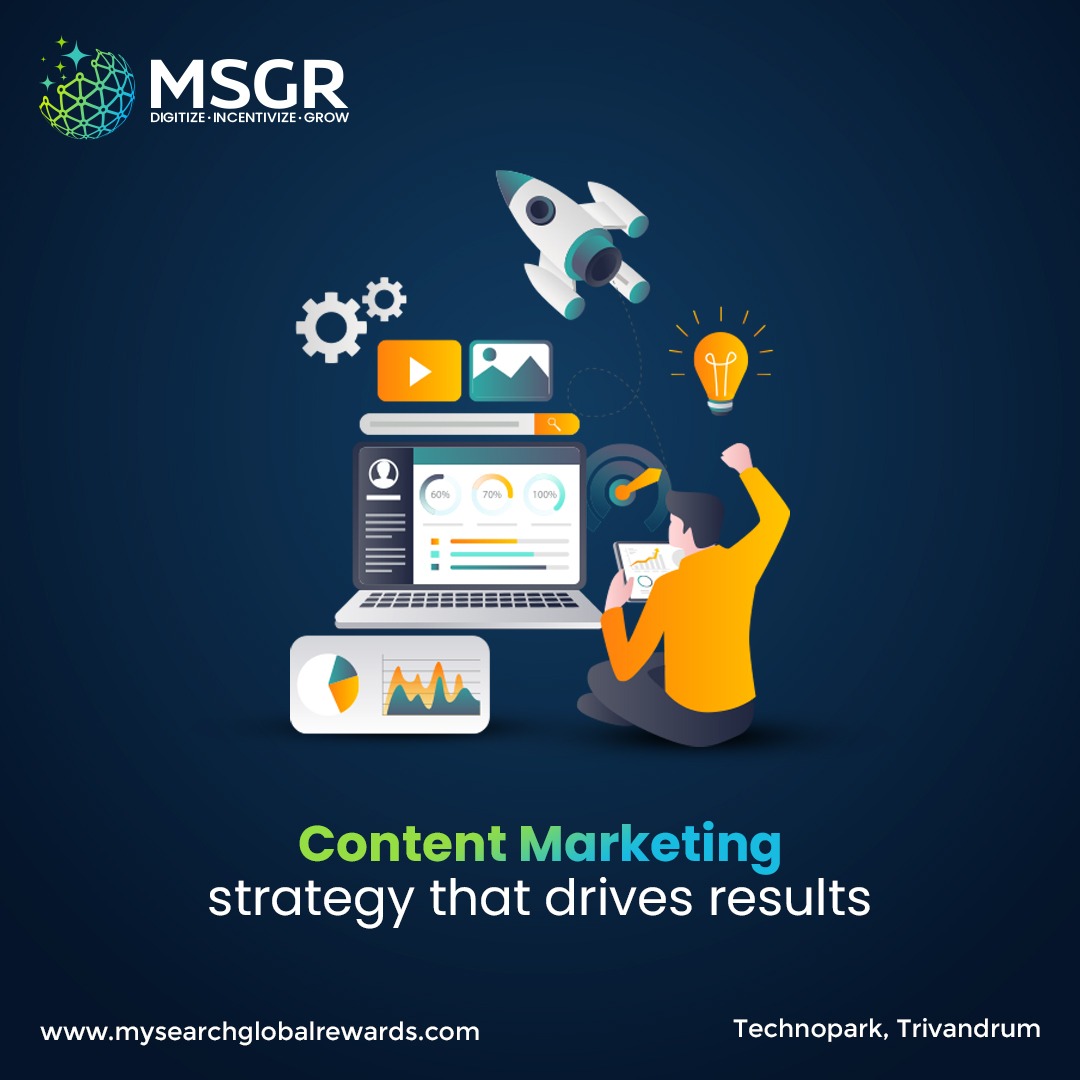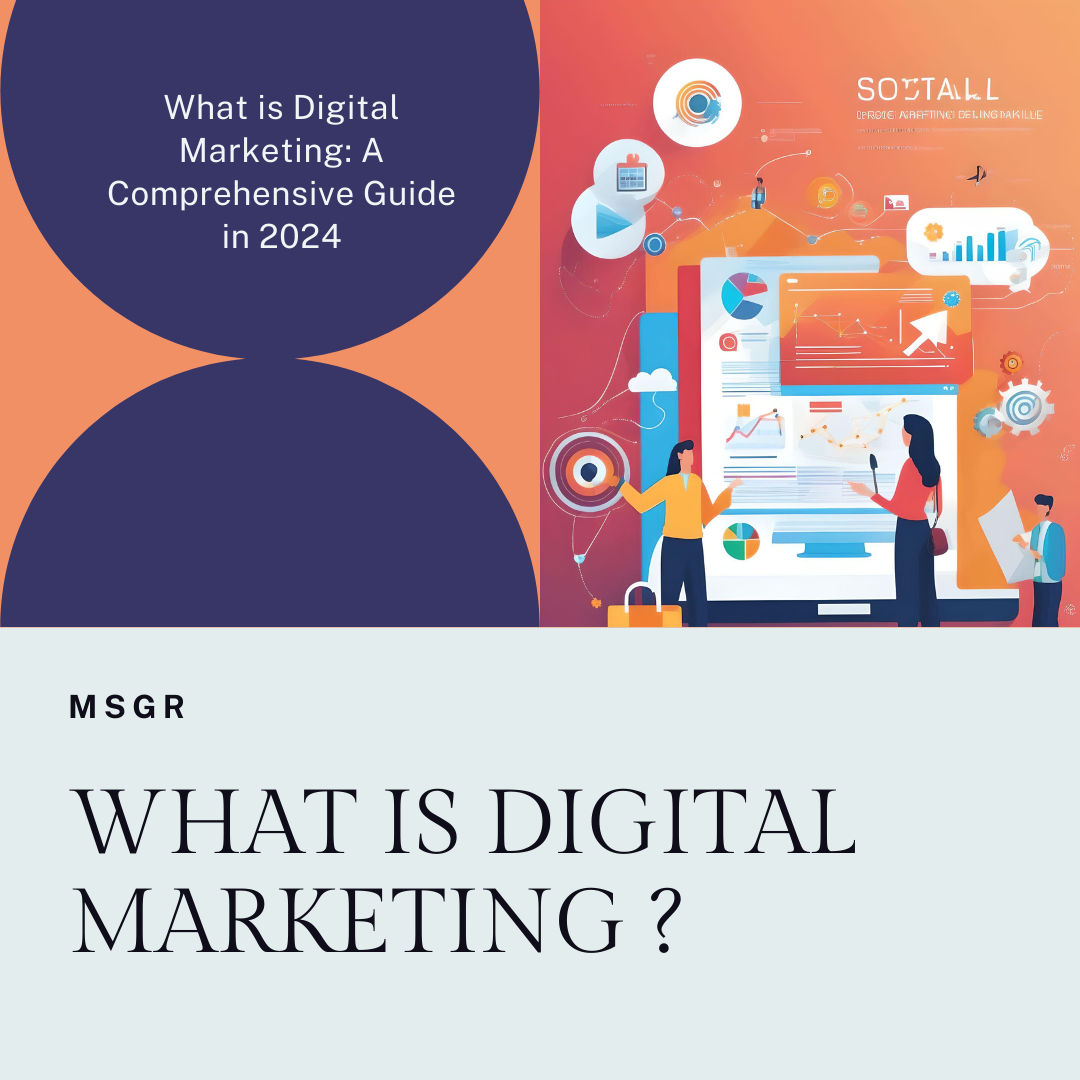8 Reasons Why ERP Is Important For Your Business In 2021
In today's world, it's difficult to find a company that doesn't rely on software for numerous business operations. Most companies use a variety of tools to streamline procedures and limit the possibility of human error. Enterprise resource planning, or ERP software, appeals to businesses because it helps them to control organisational operations in a centralised and integrated structure.
In this blog, we'll go over a detailed explanation of how ERP is Essential For Business In 2021. Let's take a closer look at it.
What is ERP?
ERP software organises and combines day-to-day company processes including financing, procurement, production, project management, human resources, and others. It delivers real-time, accurate data that enables stakeholders to make business decisions based on the information provided. ERP avoids duplicate data and ensures data integrity by gathering a company's shared transactional data from many sources.
Benefits of ERP
Organizations that want to manage their business processes in a unified and integrated system employ enterprise resource planning (ERP).ERP software that aids organizations in the supply chain to monitor all the moving parts of manufacturing and distribution. ERP, on the other hand, can be used in a wide range of industries, including healthcare, charitable organisations, construction, and hospitality. ERP benefits are available to businesses that need to manage their employees, customers, and inventories.
Different entered data is stored in a single database, allowing all departments to work with the same data. All of this data can also be categorised, analysed, and converted into reports. ERP is a single framework that integrates customer support, human resources, business intelligence, financial management, inventory management, and supply chain management.
Why ERP is Important
How does enterprise resource planning software vary from other options for managing a range of business processes? Despite the fact that ERP’s aims are comparable to those of other systems, its unique features set it apart in the software industry.
Here are the top #8 reasons Why ERP Is Important For Your Business In 2021:
1. Better Analytics
ERP establishes a consolidated database, allowing businesses to get important insights through improved analytics and reporting. Many businesses employ ERP data storage to use the software as a source of business intelligence. To get the most out of analytics, though, enterprise resource planning software needs to have a lot of features and capabilities.
Your team will be able to produce reports more quickly and easily with the correct solution. Because ERP software processes data in minutes, you don't have to spend many days researching and creating reports. Some technologies come with a customisable dashboard that allows decision-makers to quickly access reports. These reports can cover everything from income and expenditure statements to specialised KPIs that provide insight into specific processes.
2. Enhance Collaboration
ERP systems vary widely in terms of functionality based on the package you're using, but in general, all systems increase collaboration in some way. As previously said, the centralised database is a vital component of what defines an ERP.
The tool eliminates the requirement to combine data from many applications or sources. As a result, projects function without hiccups or hesitations, and team members have complete access to the data. Because data is compiled, stored, and accessed in a single system, ERP software improves data security and accuracy.
3. Streamline Business Processes
Businesses must align operational processes and workflows with the new system during the installation phase of an enterprise resource planning solution. Firms streamline numerous procedures as a result of this, resulting in more efficient operations. You can take advantage of the chance to rethink your business operations. As a result, your business gains more accuracy, speed, and efficiency.
The automation and integration that ERP systems provide also help to boost your company's productivity. You may take advantage of this benefit without raising labour costs or undermining your teams' ability to handle important activities quickly. Furthermore, meeting the expectations of external shareholders and commercial partners is easy.
4. Ensure Customer Satisfaction
As companies in a variety of industries compete for a competitive advantage, it's critical to take a customer-centric approach that boosts overall satisfaction. Customers that are pleased with your service are more likely to recommend it to others. ERP software includes or allows connectivity with customer relationship management (CRM) software.
CRM software integration gives you access to critical customer data. Customers' order history, contact information, and billing information are all included in this data. This information can be used by your employees to understand more about preferences and needs. Customer data aids in the development of lead-generating sales techniques.
5. More Money Saved
ERP packages are still a significant investment, despite the fact that several suppliers have introduced flexible pricing in recent years. For many, the program's high expenditures alone make it seem doubtful that it will save your company any money at all. However, once you get past the sticker shock, it's simple to understand how ERP may deliver a great return on investment.
First, ERP unites several of your organization's systems that are currently fragmented. Your employees will be able to access all of the resources they need for their jobs from one centralised system, from product development to accounts payable.
By combining systems, you can assist your employees to make better use of their time. Users don't have to scour multiple systems for information when using ERP. Information is significantly easier to retrieve due to the central database. Furthermore, ERP saves your company money by removing the requirement for users to be trained on several systems. This not only saves money on training, but it also saves time and effort in the logistics department.
6. Improved Productivity
By making tedious activities unavoidable, legacy practices stifling productivity. Inventory control, timesheet tracking, and report generation are all frequent tasks that stifle productivity. Previously, businesses had no alternative but to perform these duties manually. Employees put in countless hours to deal with the overwhelming task.
These procedures take time and might lower staff morale, compromising accuracy. Human error represents a big stumbling barrier for many corporate operations without ERP solutions. You can boost productivity by automating many repetitive processes, such as data input, with the correct enterprise resource planning technology.
7. Improved Inventory Monitoring
Tracking and managing increased inventory levels is a big difficulty for developing businesses. To keep track of your inventory at every stage of the supply chain, ERP uses barcoding, RFID tags, and serial numbers. These technologies assist you in keeping track of inventory levels across many warehouses.
Inventory tracking helps with reporting as well, as tracking technology provides more precise numbers. Users can create custom KPIs to see which products move the quickest, indicating higher demand, and which products have the highest carrying costs. Due to ERP's enhanced precision, warehouse managers may obtain real-time data on their inventory, enabling them to make more accurate business decisions.
8. Improved Production Planning and Resource Management
ERP also handles manufacturing in addition to inventory management. ERP gives visibility into all manufacturing processes, including shop floor activities. This allows users to maximise capacity by optimising production schedules, equipment, and labour.
ERP also manages your Bill of Materials (BOM) and fixed assets. Users may simply create and amend BOMs with this software, as well as maintain track of all past changes. Fixed asset management enables users to schedule equipment maintenance in advance to avoid unplanned downtime, hence increasing profitability and strengthening supply chain connections.
Conclusion
You must be able to keep up with the ever-changing technical developments in the face of increasingly tough corporate competition. Using manual or archaic methods to run your business can only leave you behind. Why haven't you automated your processes as other business owners have?
ERP can help you simplify a variety of complex activities, increase efficiency, reduce expenses, and boost your company's production. It can be used by enterprises of various kinds, including small, medium, and large ones.
If you're not sure what features you'll need in an ERP system, talk to the correct ERP solution provider about it. For those wishing to deploy automated solutions to streamline their business processes, MSGR offers a free consultation. To learn more about the available consultation methods, visit https://www.mysearchglobalrewards.com/






